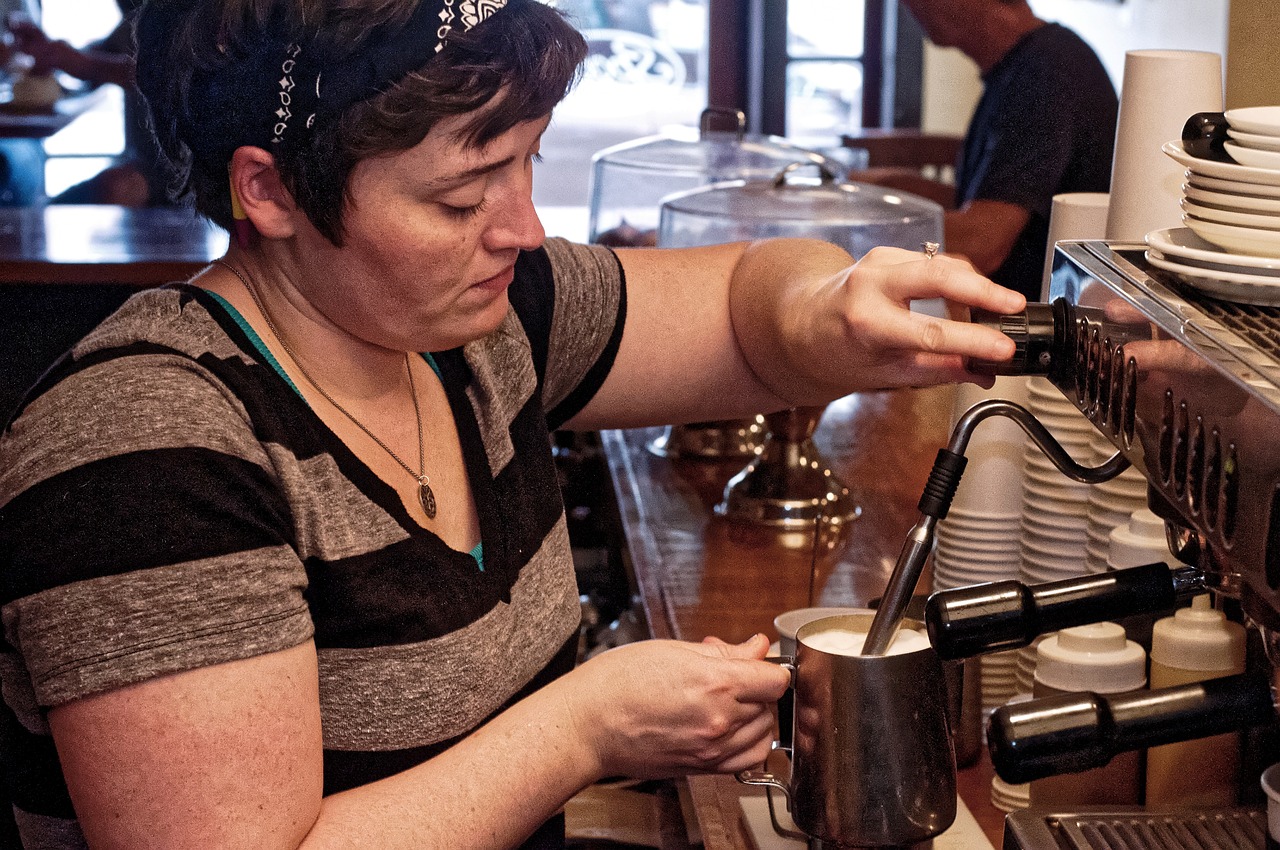I’m going to let y’all in on a secret: I don’t actually like coffee. Which is not to say I don’t drink it — whenever I’m trying to cram more work into the day than humanly healthy, to the espresso I go. And which is not to say I don’t frequent coffee shops — the gentle buzz of community happening around me carries me through whatever I brought to work on while there. These two aspects of my relationship with that bitter bean juice mirror points of focus in the wider coffee industry. And what is Coffee Day for if not for thinking about our relationship with that darkly attractive cup of coffee and all that goes into making it?
Our relationship with coffee often starts in the hands of a barista. And baristas are a lynchpin part of the community gathered into the coffee shop, as their work makes the organization and servicing of that community possible. Baristas are also majority women (as are hospitality workers in general), making them susceptible to issues resonating with the larger women’s community such as the pay gap, gendered or sexual harassment, and reduced job stability. These issues are magnified by baristas’ positions as service workers: they must face assumptions made by unthinking customers about their gendered role and the linked devaluing of the kind of service they provide in addition to women’s far-reduced presence in management positions.
Women’s relegation to low positions and labor devaluation isn’t restricted to accommodation and food services — it is, in fact, heightened in areas of coffee production. Men with benefits pulled from gender inequality get the better-paid opportunities, both in higher positions in the coffee industry and in other industries that involve migration. Women thus are relegated to undervalued, manual labor jobs on coffee farms — these jobs, when paired with the unpaid domestic labor women are expected to perform, result in a grueling 15-hour workday.
From grueling and devalued work, we move to solutions, if perhaps only temporary solutions — like sleep deprivation goes with my espresso, poor working conditions go with community support and education. International Coffee Day’s (ICD) own website focuses on youth education as a way to mitigate migration away from farming and attempt to bring more wealth to farmers, while others focus on connecting farmers through the internet so they can communicate knowledge to one another and improve their practices. These efforts — though focused on coffee farm owners and not the manual laborers that women so often are — will hopefully allow folks in coffee farming the means to empower themselves, organize to achieve self-sufficiency, and bring new value to their work; people moving away from farming for better job prospects can be seen as an aspect of the undervaluing of agricultural businesses by the areas that receive their resources.
To further connect the devaluation of manual farm labor with baristas’ labor in the service industry, we must look into U.S. society: we value bosses and entrepreneurs, but in doing so the people working necessary unskilled labor get left behind in our lauding and — more importantly — in their being valued through good pay. The solutions to women’s devalued, unskilled labor are left primarily unaddressed, though family-owned farms and farms with more expensive products typically better value their field labor — both of which are promoted by ICD’s efforts.
Though the above-mentioned educational practices that focus on retaining workers benefit women, the International Women’s Coffee Alliance (IWCA) specifically points to women in coffee farming and production. It focuses on developing what women see in their work, and includes a page that lists women selling their green product and their sentiments on it: of note, farming is a vector of employment for local people, development for their country, a link to family business, and sustainability for both community and environment. Should you choose to directly support these women and cannot roast your own beans, IWCA also has a page with links to roasted coffee you can buy online.
As the women of the IWCA come together to promote various levels of their community through their coffee-growing craft, we resurface from the depths of coffee production to the iceberg-tip we’re familiar with. As we take the coffee cup from our barista’s hands, let us remember the struggle of women who work in the coffee industry, let us live life connected with invisible labor that makes our cuppa possible. Why not let your barista know you appreciate her, ask her about her day, and feel oneness with the work that went into the drink that’s about to wake you up to do your own work?
Our Her Nexx Chapter Community invites you to join us where women are connecting with each other’s stories, exploring different experiences, and transforming ideas.
The Future of Connection for Women
- International Coffee Day: The Women Behind Your Cup - September 29, 2020
- How Intersectionality Connects Us With the Past: A Women’s Equality Day Perspective - August 27, 2020
- The Power of Community: From Introvert to Getting Connected - August 13, 2020







